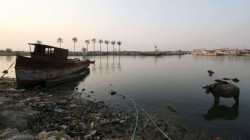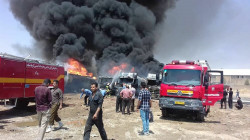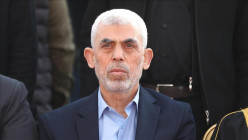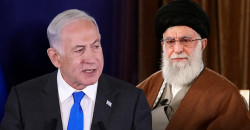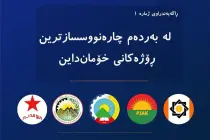Statements and dismissals in the pro-Iran camp..What's going on in Iraq?
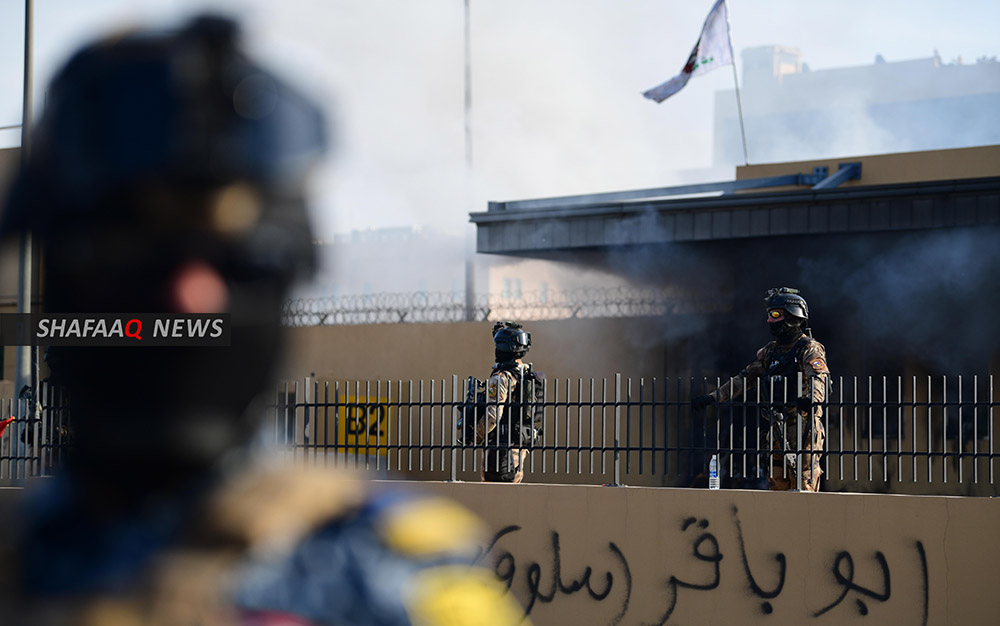
Shafaq News/ Sudden changes in the positions of political forces and factions close to Iran in Iraq began to surface since Wednesday night, in developments that sources say come against the backdrop of a U.S. warning of a stern response to those who are targeting their interests in the country.
The first positions were issued by the Sadrist leader Muqtada Al-Sadr in a tweet criticizing "some factions" exploiting the Popular Mobilization Forces (PMF) Organization, accusing them of being behind the assassinations and bombings taking place in Iraq.
The other forces close to Iran did not wait long to respond with positions similar to Al-Sadr's move, where Al-Fateh coalition, led by Hadi Al-Amiri rejected and condemned "any action targeting diplomatic missions", calling on "the judiciary and the security services to stand firm and strong and end the series of kidnappings, assassinations, and terror among the people”.
At the same time, the Popular Mobilization Commission issued a statement in which it also disowned "any suspicious operations and illegal military activity targeting foreign or civilian interests".
This is the first time that Al-Fateh coalition and the Popular Mobilization Commission have issued statements condemning the targeting of foreign missions in Iraq; nearly a year after rocket attacks against the U.S. embassy in Baghdad and some Iraqi camps housing U.S. soldiers escalated.
Some of the factions under these two compositions -such as Kata’ib Hezbollah (The Popular Mobilization Commission) and Asa’ib Ahl al-Haq (Al-Fateh Coalition and The Popular Mobilization Commission), were promoting and glorifying rocket attacks targeting U.S. interests in Iraq.
But what is the secret of the sudden change in attitudes?
An informed source within the Popular Mobilization Commission revealed that the change in the positions of these parties "came after a recent meeting between Prime Minister Mustafa Al-Kadhimi and Shiite forces in which he informed them that the United States threatened to consider anyone who is silent about attacks targeting diplomatic missions, as a partner in it and will be held accountable strongly".
"Members of Al-Fateh alliance and The Popular Mobilization Commission’s chairman Faleh Al-Fayyad have expressed fears that they may be subjected to harsh U.S. sanctions, which will threaten their interests and undermine their political future", the source added.
President Barham Saleh delivered the same message to these parties at a recent meeting in Baghdad, according to what the Washington-funded Al-Hurra television reported.
Faleh Al-Fayyad decided to dismiss two PMF leaders from their posts and assign others in their place -without explaining the reasons.
This was contained in two administrative orders issued by al-Fayyad, one of which was issued on September 21st and provided for the exemption of Wa’ad Al-Qaddu from the duties of the Commander of the 30th Brigade in the PMF and the assignment of Zain Al-Abidin Jamil Khadr in his place.
The other order was issued on August 28th and included the exemption of Hamid Al-Jazairi from the 18th Brigade Commander in the PMF and the assignment of Ahmed Muhsen Mahdi Al-Yassiri in his place.
Wa’ad Al-Qaddu, alias "Abu Jaafar" from Nineveh province, is the founder of the 30th Brigade in the PMF and is also an officer in the Iraqi National Security Service.
This faction faces accusations by Sunni tribes in Nineveh of committing abuses against their sons by placing them in secret prisons, torturing them, and killing them, which the faction's leaders deny.
Hamid Al-Jazairi, commander of the 18th General of the Popular Mobilization Forces, and deputy commander of Saraya Al-Khursani is facing charges by activists in popular protests against the ruling political elite; of leading a team of snipers and killing the protesters.
"The head of the Popular Mobilization Commission, Faleh al-Fayyad, took this step in an attempt to absorb the anger of Americans and get close to them. The dismissal of Al-Jazairi and Al-Qaddou was carried out in coordination with the factions’ leaders within the Popular mobilization Commission and at the direction of Tehran, to change the provocative faces in the commission and appoint replacements, but of the same affiliation", the source said.
"The person who succeeded Al-Jazairi, Ahmed Al-Yassiri, is the cousin of Saraya Al-Khursani's secretary-general Ali Al-Yassiri”, the source said on condition of anonymity.
Observers believe that the move of pro-Tehran faction leaders did not go far from Iran, which last Saturday condemned attacks against diplomatic missions in Iraq and called on the government to tighten its security measures to prevent repeating them, as the official IRNA news agency quoted Iranian Foreign Ministry spokesman Saeed Khatibzada.
"Al-Kadhimi and Barham Saleh conveyed a message from the U.S. administration -Secretary of State Mike Pompeo specifically- which included threats of a firm response and possibly the closure of their embassies in Baghdad in protest against the continuing attacks", said Iraqi political analyst Raad Hashim.
"This threat has scared the political forces loyal to Tehran a lot because they could be accompanied by U.S. sanctions against prominent figures”, Al-Hurra reported.
However, Raad Hashim points out, "Such positions would not have been issued far from Tehran, which controls the overall movements and positions of its forces and factions in Iraq, and moves or freezes them at will".
Hashim attributes Iran’s move to its willingness to calm down with the United States and the West in general, for several reasons, most notably its willingness to make concessions on the issue of sanctions.
